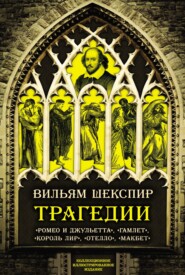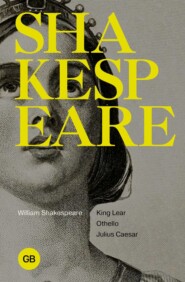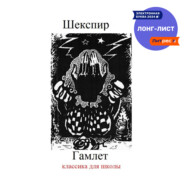По всем вопросам обращайтесь на: info@litportal.ru
(©) 2003-2024.
✖
Richard II
Настройки чтения
Размер шрифта
Высота строк
Поля
Richard II
Уильям Шекспир
William Shakespeare
Richard II
Actus Primus, Scaena Prima
Enter King Richard, Iohn of Gaunt, with other Nobles and Attendants.
King Richard. Old Iohn of Gaunt, time-honoured Lancaster,
Hast thou according to thy oath and band
Brought hither Henry Herford thy bold son:
Heere to make good y boistrous late appeale,
Which then our leysure would not let vs heare,
Against the Duke of Norfolke, Thomas Mowbray?
Gaunt. I haue my Liege
King. Tell me moreouer, hast thou sounded him,
If he appeale the Duke on ancient malice,
Or worthily as a good subiect should
On some knowne ground of treacherie in him
Gaunt. As neere as I could sift him on that argument,
On some apparant danger seene in him,
Aym'd at your Highnesse, no inueterate malice
Kin. Then call them to our presence face to face,
And frowning brow to brow, our selues will heare
Th' accuser, and the accused, freely speake;
High stomack'd are they both, and full of ire,
In rage, deafe as the sea; hastie as fire.
Enter Bullingbrooke and Mowbray.
Bul. Many yeares of happy dayes befall
My gracious Soueraigne, my most louing Liege
Mow. Each day still better others happinesse,
Vntill the heauens enuying earths good hap,
Adde an immortall title to your Crowne
King. We thanke you both, yet one but flatters vs,
As well appeareth by the cause you come,
Namely, to appeale each other of high treason.
Coosin of Hereford, what dost thou obiect
Against the Duke of Norfolke, Thomas Mowbray?
Bul. First, heauen be the record to my speech,
In the deuotion of a subiects loue,
Tendering the precious safetie of my Prince,
And free from other misbegotten hate,
Come I appealant to this Princely presence.
Now Thomas Mowbray do I turne to thee,
And marke my greeting well: for what I speake,
My body shall make good vpon this earth,
Or my diuine soule answer it in heauen.
Thou art a Traitor, and a Miscreant;
Too good to be so, and too bad to liue,
Since the more faire and christall is the skie,
The vglier seeme the cloudes that in it flye:
Once more, the more to aggrauate the note,
With a foule Traitors name stuffe I thy throte,
And wish (so please my Soueraigne) ere I moue,
What my tong speaks, my right drawn sword may proue
Mow. Let not my cold words heere accuse my zeale:
'Tis not the triall of a Womans warre,
The bitter clamour of two eager tongues,
Can arbitrate this cause betwixt vs twaine:
The blood is hot that must be cool'd for this.
Yet can I not of such tame patience boast,
As to be husht, and nought at all to say.
First the faire reuerence of your Highnesse curbes mee,
From giuing reines and spurres to my free speech,
Which else would post, vntill it had return'd
These tearmes of treason, doubly downe his throat.
Setting aside his high bloods royalty,
And let him be no Kinsman to my Liege,
I do defie him, and I spit at him,
Call him a slanderous Coward, and a Villaine:
Which to maintaine, I would allow him oddes,
And meete him, were I tide to runne afoote,
Euen to the frozen ridges of the Alpes,
Or any other ground inhabitable,
Where euer Englishman durst set his foote.
Meane time, let this defend my loyaltie,
By all my hopes most falsely doth he lie
Bul. Pale trembling Coward, there I throw my gage,
Disclaiming heere the kindred of a King,
And lay aside my high bloods Royalty,
Which feare, not reuerence makes thee to except.
If guilty dread hath left thee so much strength,
As to take vp mine Honors pawne, then stoope.
By that, and all the rites of Knight-hood else,
Will I make good against thee arme to arme,
What I haue spoken, or thou canst deuise
Mow. I take it vp, and by that sword I sweare,
Which gently laid my Knight-hood on my shoulder,
Ile answer thee in any faire degree,
Уильям Шекспир
William Shakespeare
Richard II
Actus Primus, Scaena Prima
Enter King Richard, Iohn of Gaunt, with other Nobles and Attendants.
King Richard. Old Iohn of Gaunt, time-honoured Lancaster,
Hast thou according to thy oath and band
Brought hither Henry Herford thy bold son:
Heere to make good y boistrous late appeale,
Which then our leysure would not let vs heare,
Against the Duke of Norfolke, Thomas Mowbray?
Gaunt. I haue my Liege
King. Tell me moreouer, hast thou sounded him,
If he appeale the Duke on ancient malice,
Or worthily as a good subiect should
On some knowne ground of treacherie in him
Gaunt. As neere as I could sift him on that argument,
On some apparant danger seene in him,
Aym'd at your Highnesse, no inueterate malice
Kin. Then call them to our presence face to face,
And frowning brow to brow, our selues will heare
Th' accuser, and the accused, freely speake;
High stomack'd are they both, and full of ire,
In rage, deafe as the sea; hastie as fire.
Enter Bullingbrooke and Mowbray.
Bul. Many yeares of happy dayes befall
My gracious Soueraigne, my most louing Liege
Mow. Each day still better others happinesse,
Vntill the heauens enuying earths good hap,
Adde an immortall title to your Crowne
King. We thanke you both, yet one but flatters vs,
As well appeareth by the cause you come,
Namely, to appeale each other of high treason.
Coosin of Hereford, what dost thou obiect
Against the Duke of Norfolke, Thomas Mowbray?
Bul. First, heauen be the record to my speech,
In the deuotion of a subiects loue,
Tendering the precious safetie of my Prince,
And free from other misbegotten hate,
Come I appealant to this Princely presence.
Now Thomas Mowbray do I turne to thee,
And marke my greeting well: for what I speake,
My body shall make good vpon this earth,
Or my diuine soule answer it in heauen.
Thou art a Traitor, and a Miscreant;
Too good to be so, and too bad to liue,
Since the more faire and christall is the skie,
The vglier seeme the cloudes that in it flye:
Once more, the more to aggrauate the note,
With a foule Traitors name stuffe I thy throte,
And wish (so please my Soueraigne) ere I moue,
What my tong speaks, my right drawn sword may proue
Mow. Let not my cold words heere accuse my zeale:
'Tis not the triall of a Womans warre,
The bitter clamour of two eager tongues,
Can arbitrate this cause betwixt vs twaine:
The blood is hot that must be cool'd for this.
Yet can I not of such tame patience boast,
As to be husht, and nought at all to say.
First the faire reuerence of your Highnesse curbes mee,
From giuing reines and spurres to my free speech,
Which else would post, vntill it had return'd
These tearmes of treason, doubly downe his throat.
Setting aside his high bloods royalty,
And let him be no Kinsman to my Liege,
I do defie him, and I spit at him,
Call him a slanderous Coward, and a Villaine:
Which to maintaine, I would allow him oddes,
And meete him, were I tide to runne afoote,
Euen to the frozen ridges of the Alpes,
Or any other ground inhabitable,
Where euer Englishman durst set his foote.
Meane time, let this defend my loyaltie,
By all my hopes most falsely doth he lie
Bul. Pale trembling Coward, there I throw my gage,
Disclaiming heere the kindred of a King,
And lay aside my high bloods Royalty,
Which feare, not reuerence makes thee to except.
If guilty dread hath left thee so much strength,
As to take vp mine Honors pawne, then stoope.
By that, and all the rites of Knight-hood else,
Will I make good against thee arme to arme,
What I haue spoken, or thou canst deuise
Mow. I take it vp, and by that sword I sweare,
Which gently laid my Knight-hood on my shoulder,
Ile answer thee in any faire degree,

















